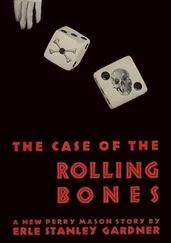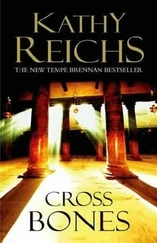‘What you do, my dear Fenella, you do from many impulses – of noblesse oblige , of Samaritan generosity, of Christian decency. But I alone know that you do it from love.’
‘Oh, Harold,’ she breathed, ‘what do I know of love any more? Since Augustus died, I have been a stranger to the tender emotions. While all around me have danced through their middle years, and some have found other partners, I have kept faith with Gussie. My sister took me to a ball at Nancy Cunard’s, full of nigger minstrels and with a tiger from Sumatra and an ice statue of a swan whose beak some of the brazen flappers actually licked , and I was miserable throughout because there was no lovely Gus to lead me through the polka steps, and I went home early and cried into his dressing gown which stank of pipe tobacco, and I hugged it like a madwoman.’
‘My poor Fenella,’ I cooed into her bosom, startled to be allowed such intimacy. She laid her drooping head upon my neck and sobbed. Her cheek was hot against my skin.
We stood in an awkward embrace. I had, I confess, not the faintest idea what might happen next. I have known Fenella for years, ever since my work in London restarted after the war, and we have been through much together. Through night shelters in Pimlico and day-care homes in Stepney, I have introduced her to the needy and the profligate, to whom she has talked and proffered advice most helpfully over the years.
At first, the recipients of her advice did not find her engaging; she tended to address them like a duchess ticking off delinquent parlourmaids. She was always a little too intent on getting to the meat of their sufferings. Sometimes, it seemed she regarded them as turns in a burlesque show. ‘Are you an Alcoholic?’ she would ask. ‘Are you a Prostitute? Did you become a Prostitute in order to Feed a Baby Born Out of Wedlock? To what level of indignity did your employer abuse you?’ But I took her in hand, taught her to soften her voice, forsake her more intimidating hats, and learn to listen. It took a while.
Cynics might object to the enthusiasm with which she seeks out tales of sinfulness, and the relish with which she imparts the details of her findings to friends at lunch parties, but I know her impulses are pure. Disappointed by life, she has found a cause, as I have devoted my life to many causes, and she has stuck to it. Kindliness and sympathy have been her watchwords, and her transactions of money into my charitable funds have been the happy public outcome. Without her, I would eat bread and beef-dripping sandwiches every day, like the hapless masses in Lincoln’s Inn Fields.
Was I wrong to embrace her thus, as she fretted over her dead husband? I am a tactile man. If it is a fault to translate emotional generosity into physical expression, then I own up to the fault unreservedly. The girls among whom I move in London are used to my gentle embraces, my occasional bestowings of chaste kisses. They know the innocent pressure of my arms around them, telling them not to fear. What harm can be done by offering the occasional close contact of the notional swain – the touch of love that we all secretly crave? And had our lips met yesterday, I would not have been surprised nor dismayed. There is a passion in the pursuit of virtue that must find an outlet sometimes, even in salivatory exchanges. I thought of my recent sermon: what would Jesus have done in similar circumstances? I have no doubt at all that he was a kisser. His relations with Mary must have involved a degree of embrace and osculation, I am sure. His visits to the house of Martha and Mary would have ended in a flurry of fleshy connections in the doorway. I allow myself the thought that, while the one busied herself with household chores and the other was devoted to prayer and virtue, Our Lord might have stolen a kiss from the former, while the latter had her eyes shut in supplication. I can imagine him encircling Martha’s aproned waist from behind, as her hands in the sudsy water paused in their cleansing digitations, and her lovely head (I see curly fair hair darkened by the sweat of her labours, white if irregular teeth, skin like a white Egyptian peach) turned round, her eyes half anxious, half incredulous that this could be happening, her Cupid’s-bow lips parting, as he bent forward …
Lady Royston-Smith withdrew from my arms quite suddenly, with a forcefulness that suggested I had gone too far.
‘You were, I believe, about to enlist my help in an introduction, Mr Davidson?’ Suddenly, we were back on formal terms.
‘I know, Fenella, that you are a friend of Sir Arthur and Lady Bassenthwaite,’ I said, pulling my clerical jacket around me.
‘Arthur and Frederica? Of course. They are old friends. Frederica’s mother knew mine in Ashford. But I haven’t seen them for years. I believe they live in Africa.’
‘Indeed, they have spent the last three years in Kenya. But I notice from today’s Times they are sailing for England, to resume residence in Eaton Square. I would not trouble you to bring my work to their attention, except that Lady Bassenthwaite has for years worked for a charity bringing comfort to distressed gentlefolk of the region. Now she is back in London, she may be looking for a fresh outlet for her kind work …’
‘And you thought she might have some spare cash to steer towards your – ladies?’ A steely note had entered her voice.
‘All I ask, Fenella,’ I said, ‘is that I can meet them, with your help, and lay before them the size of the social problem that surrounds, for several miles, their comfortable Belgravia home.’
‘Well –’ she seemed fatigued by being asked for one more favour – ‘I’ll have to see. They’ll be acclimatising to their new life, and I don’t want to burden them with –’
‘If I could guarantee a bishop would accompany me to the meeting?’ I said. ‘Might that smooth things?’
‘Of course, Harold.’ (Suddenly we were back to Harold and Fenella; how Lady R-S loves the purple.) ‘You envisage a tea party? Here?’
‘That would be ideal.’
‘Perhaps. I’ll have to speak to Frederica when she has docked. But apart from the expatriates and the bishop, is there anything else that might enliven the occasion?’
‘I fancy,’ I said, neutrally, ‘I could bring a misfortunate girl – or two – to join our company, purely to demonstrate the scale of the problem.’
She pondered the arrangement: teatime at the Charing Cross Hotel with one peeress of the realm, one rector, one bishop and at least one prostitute, possibly two.
It was too good to turn down.
‘Shall we say Friday fortnight?’ And with that, she ushered me out the door, banished from the scene of our brief, romantic intermezzo. (Alas!)
Journals of Harold Davidson
London 15 September 1930
Have finally made contact with Miss Harris! It has not been easy. The young lady, despite her iniquitous employment, seems to have a positive aversion to being At Home to callers. I have made the dismal trek to Queen Street, Camden, four times now, not counting the evening when I made the error of tapping on Barbara’s window and finding an intimidating face looking out. From my knowledge of the Profession, I am aware that mornings are slow (the girls invariably sleep in), lunchtime finds some vigorous activity under way, listless afternoons speed up – like cricket matches! – after the tea interval, then die down from what we have learned to call ‘the cocktail hour’ at 6 p.m. until the pubs start to empty around ten, which is the signal for a great unloosening of sin all over the city.
I called three times in the early evening. Each visit was as fruitless at the last. I stood before the door of number 14, pressing the lowest bell, but heard only a distant inner jangling – like the twanging of my nerves as I awaited yet another hostile confrontation like the last. Resolving to give it up after this final attempt, I called yesterday in the mid-morning, pressed the bell, looked sadly at the drawn curtains and rapped my knuckles on the glass pane …
Читать дальше












